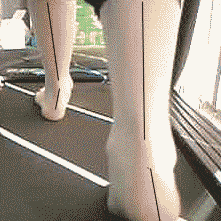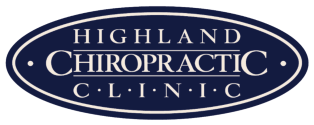What are Orthotic Insoles?
 It does not take an expert to realise there is something seriously with the way this child walks! An 'orthotic' is a device designed to restore your natural foot function and gait (walking) cycle. Many 'biomechanical' complaints such as heel pain, knee pain and lower back pain are caused by poor foot function. Orthotics re-align the foot and ankle bones to their neutral position, thereby restoring natural foot function. In turn this helps alleviate stresses in other parts of the body that try to compensate.
It does not take an expert to realise there is something seriously with the way this child walks! An 'orthotic' is a device designed to restore your natural foot function and gait (walking) cycle. Many 'biomechanical' complaints such as heel pain, knee pain and lower back pain are caused by poor foot function. Orthotics re-align the foot and ankle bones to their neutral position, thereby restoring natural foot function. In turn this helps alleviate stresses in other parts of the body that try to compensate.
If you look at the animation you can imagine the stresses on the ankle and foot in this teenager.
In addition, orthotics distribute weight more evenly through the foot, taking pressure of sore spots (e.g. the ball of the foot, corns in between toes, bunions etc) and they can be tailored to provide shock absorption.
Orthotics typically benefit people with pain or discomfort due to walking imbalances. Imbalances can be caused by flat feet, collapsed arches, arthritic feet and ankles, bunyons, heel spurs, knee problems and hip problems. These imbalances can be corrected with a combination of orthotics and remedial exercises.
Am I likely to benefit from Orthotic Insoles?
Orthotics are particularly beneficial for the following people:
| People who stand or walk all day will benefit from orthotics |
| If you suffer from pain during any form of sporting exercise then orthotics can reduce the pain associated with your condition |
| For overweight individuals, orthotics will help to counteract the extra stress being placed on the feet |
The most common conditions treated with orthotics are:
| Metatarsalgia, Plantar Fasciitis (Arch Pain), Heel Spurs & Heel Pain | ||
| Achilles Tendonitis | Sesamoiditis | Ankle Sprains |
| Flat Feet | Mortens Neuroma | Tendonitis (shin splints) |
| Bunions | Knee Pain | Thigh & Lower Back Pain |
Orthotics vary widely in cost, a simple over the counter modified footbed would cost between £30-£50, semi custom heat mouldable orthotics cost about £70 and full custom cast insoles typically cost between £170-£200. The type of orthotic will depend on your footwear type, the nature of the problem being treated and the degree of gait correction required.
New in a first for the Highlands is our 3d scanner for onsite scanning of the foot accurate to within 0.2mm and a custom orthotic with a flexible shell guaranteed for life! See it in action over on our facebook on the button below.
What is the difference between Medical Orthotics and a £20 pair I can buy online?
An off-the shelf footbeds or insoles like Superfeet are perfectly good (we sell and often modify them). And if you get the correct fit will support your foot well. Some of the very cheap insoles tend to be made of softer materials or foam and rely heavily on a good shoe to retain their structure. They generally come in the "average" arch shape are quite comfortable on first use, but loose their support quickly.
A medical orthotic is deigned specifically to either change how you walk or specifically off load an injury. The density of the shell and top covers will vary depending on your weight, medical history and foot-shape. For example a diabetic patient would use a softer shell and top cover, a heavier patient might use a thicker reinforced shell, or someone with severe arthritis in their big toe or a bunion might use a shell extension to support the joint. There are around twenty-five different adaptions that can be made depending on your needs, and this simply can't be done with some off-the-shelf insoles.
